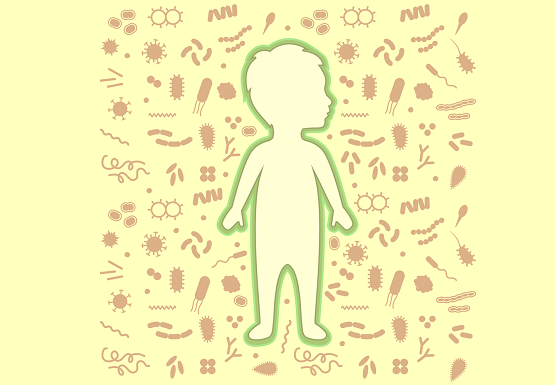
The immune system generally refers to the body’s defense system which is designed to protect the body from harmful substances or germs. There are two components – the innate immune system and the adaptive immune system.
First line of defense
The innate immune system refers to a non-specific defense system that is the first line of defense. The response is normally immediate and is found in all life forms. It is non-specific and will respond in the same manner to all germs in that it does not confer any long lasting immunity against any germ. Examples of the innate immune system include: the skin; the lining of the gut and lungs; secretions such as gastric acid in the stomach; mucus secretions in the nose; probiotics in the gut; and blood cells designed to respond to any non-specific infections.
The adaptive immune system refers to a highly specialised body’s defense response to a specific infection or germ. It is a defense system designed to recognise certain markers (antigens) on germs that will lead to the production of specific antibodies and blood cells tailored to destroy that particular germ. There is usually a lag time for the adaptive immune system to respond to infection, as it needs to learn to recognise the germ first before producing the specific defense cells. ‘Memory cells’ are also made to remember and recognise these germs. These cells can then be activated again in the future should the same germ try to invade the body leading to a faster and effective response.
In the first few months, a baby’s immune system is not fully developed. Disease-fighting antibodies in the mother’s immune system make their way across the placenta and into her baby’s body. This passive immunity can last for days to months to help protect the infant. It can be further maintained by breastfeeding. Mothers produce milk rich in cells that fight disease and infection, so breast milk continues to supplement a baby with disease fighting antibodies long after delivery. As the infant grows, the immune system is exposed to more germs and slowly learns how to defend itself more effectively.
Other line of defense
Immunisations
At 2 to 3 months old, immunoglobulin antibodies passed on from the mother’s placenta will be at a low point. This is when the baby’s immune system begins producing its own antibodies.
To aid in kick-starting the immune system, infants should be vaccinated against some diseases. Vaccinations help this process by introducing markers to teach the child’s immune system to recognise dangerous germs such as tuberculosis.
Nutrition
Nutrition is one of the best ways to help your 3- to 6-month old continue to build a healthy immune system. By this time, the baby should be eating some solids. Be aware that some foods can suppress an immature immune system. Limit sugars from juice and other packaged foods, such as yogurt.
Sleep
Sleep is important in baby’s development. While newborns and infants can sleep anywhere from 16 to 20 hours a day, even a 3-year-old needs 10 to 14 hours a night and naps during the day. Sleep deprivation appears to be linked to decreased production of proteins called cytokines that is important for the immune system. Conversely, sufficient uninterrupted sleep allows adequate production of these cytokines to ensure that the immune system remains optimal.
Article contributed by Dr Lim Kwang Hsien, accredited doctor from Mount Alvernia Hospital.
This article is taken from our My Alvernia Magazine Issue #27. Click here to read the issue on our website or on Magzter.